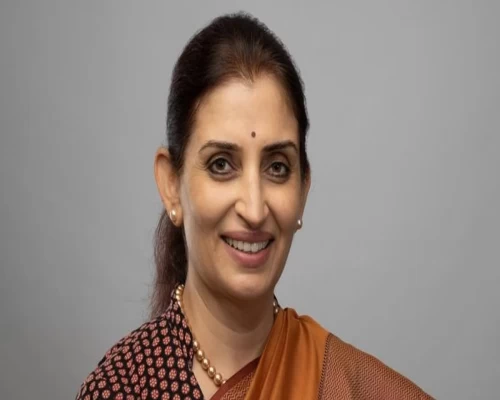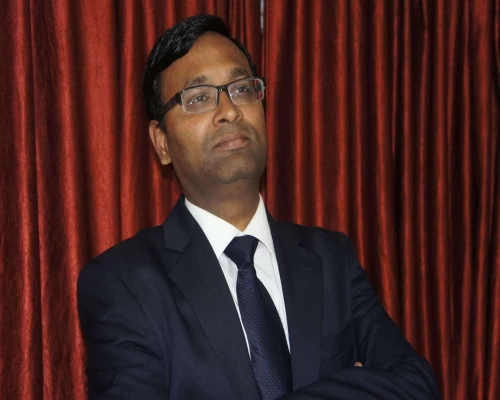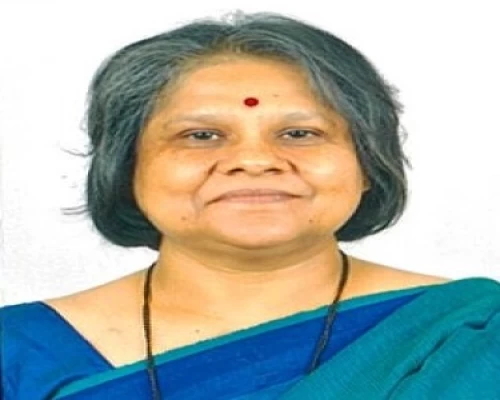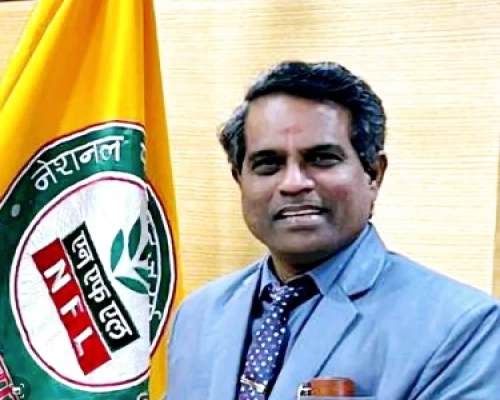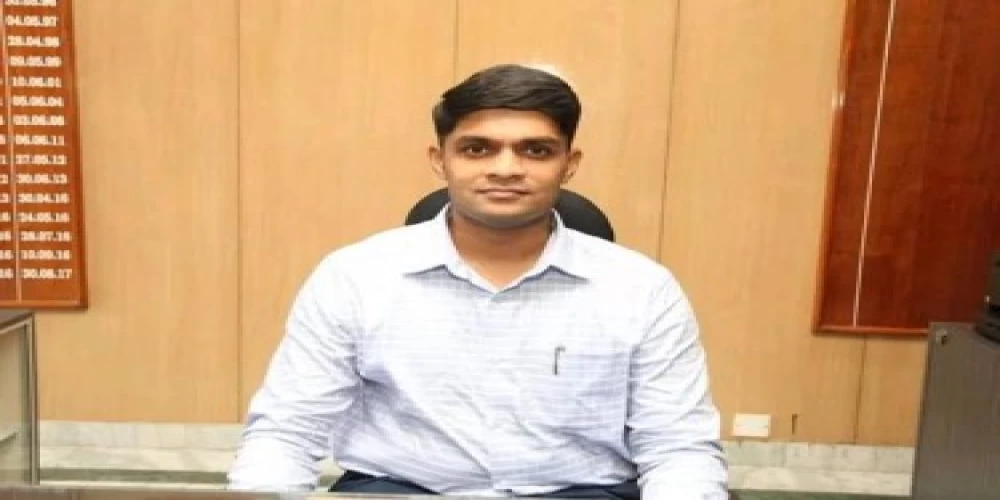
From setting up a special Cafe Able for differently abled to establishing a first-of-its-kind milk cooperative for transgender, IAS Sandeep Nanduri displays a rare commitment to innovation and public welfare. An engineering graduate of Osmania University, Nanduri strongly feels civil services give an opportunity to bring change in the lives of people, and especially those on the margins. Nanduri also gives credit to people for being more aware and assertive about their rights and how it is imperative for the bureaucracy to address people’s aspirations and needs. Calling technology as a great enabler, the IIM B graduate, and a former Hewlett Packard manager, Nanduri is firm in his belief that there is a need to focus on e-governance much more than ever before.
In an exclusive interview with Naina Jha of Bureaucrats India, the 2009 batch IAS officer Nanduri says he drew inspiration to get into the services from his father, an IPS officer. He has a tip for the aspiring IAS too - give it your best shot, but if you are not able to make it, it should not be the end of the road. Life offers exciting opportunities. Read the full interview to read the mind of this dynamic officer:
How has been your journey in bureaucracy so far?
So far so good! It's been 12 years in the service and I have worked at various postings. Every posting taught me something new. So overall it has been a wonderful journey.
When did you realise that you wanted to join the government and what all you did to reach there?
It was my childhood dream to get into civil services. My dad was also an IPS. So I was always motivated. After my engineering in MBI, I worked in the corporate sector for HP to experience the corporate world. After that I quit and prepared for civil services and cleared it in my first attempt.
How easy or difficult was it to adapt to the civil services and how did you reorient yourself?
We are given a proper structured training from day 1 where we are taught various theoretical and practical aspects. And this happens at both Mussoorie & district training. It's a very structured career curriculum where you learn as a trainee first and then you start as a SDM. It's designed in such a way that it teaches you to adapt very easily. So slowly I learnt. It's a new state & new language for me but over a period of time, I got used to the culture. Now I can say that I have perfectly adapted.
What are some of your achievements as a government servant which you would like to share with us?
The most special was the canteen called Cafe Able started in Thoothukudi district for differently abled. Then I started a milk cooperative society for Transgenders which is first of its kind in the country. It's an integrated livelihood project. There are many such moments. I was brought to Thutookudi to maintain law & order as there was a major law & order issue in the district. And I was successful in doing that. Every small project, every small achievement gives a lot of satisfaction.
What inspired you to take such inspiring initiatives like Cafe Able, Wall of Kindness and so on? How did these offbeat ideas come to your mind?
I always kept the most marginalised people on my top priority. People like differently abled, transgenders need our attention and maximum support. So I always look for projects which will benefit them. Also not only financially, I ensure that their livelihood is protected.
What aspect of your job do you enjoy the most?
Civil services gives you an opportunity to bring change in the lives of so many people and working for the betterment of the society makes me enjoy my job. I loved the fact that I have an opportunity and capacity to bring change in society.
As a bureaucrat, you have an enormous opportunity to serve the people through effective implementation. How has been your experience on this count so far?
As a bureaucrat, you get so many opportunities to implement schemes. And if you implement them properly even after so many hurdles then it can have long lasting impact. As a bureaucrat, I have implemented many such schemes and seen people getting benefited from them as well.
Help us to understand how intricate it is to work for the government given the enormity of tasks at hand as well as expectations from a civil servant.
I'd say it's not very easy to work with the government given the fact that it has multiple stakeholders. So on one side, you have to follow the rules & regulations or guidelines of the government and on the other side you have to be vigilant to ensure that the scheme reaches the actual beneficiary and also checking that the scheme is making a right impact. So it's tough but not impossible. It's being done in every corner of the country. It can be done easily with proper planning and implementation.
Bureaucracy in India has undergone a metamorphosis in the last few decades especially in terms of design and delivery. It is far more efficient today and this has given rise to soaring expectations. How do you look at this trend?
Today people expect things to happen very fast. Thanks to technology, people are now more aware of their rights. So their expectations are more and they expect bureaucracy to deliver immediately. Everything is transparent now. So we need to meet their expectations. We need to focus more on e governance. We need to incorporate technological interventions so that we create a hassle free system for everything.
Technology has a key role in transparency in government. Do you think futuristic technologies including Artificial Intelligence will continue to play an equally significant role in government welfare programs.
Yes definitely has played an important role and especially in the last ten years. Much work is done in online mode now; even the typical file movement also happening online through e-governance. And now people can monitor everything online as well and they are more aware now.
Can you share a few instances of use of technology in governance!
Yes we have started so many apps in the district. In fact one of the apps for booking tankers won the Digital India awards when I was the Corporation Commissioner. So it has helped the people to access the service very efficiently.
What are the lesser known facts about bureaucracy in India?
Lesser known fact is that bureaucrats really work hard. However the perception is we don't work, rather we delay things. But that's not the case. We as civil servants work very hard to maintain law & order. Yes there may be some bad apples in the lot but that should make every bureaucrat questionable! They sacrifice their family life especially during disasters, elections and emergencies. It's the bureaucracy who delivers things. Bureaucrats work round the clock, if required.
Do you feel people have a lot of expectations from bureaucrats?
Yes, of course. People expect us to maintain law & order seamlessly, implement schemes within a given time frame and much more. So expectations are increasing day by day because of awareness, technology, and RTI.
Share your fondest memory as a civil servant.
There are so many. I think one of them is that I helped a prisoner to establish a shop after he got released. No one was allowing him to meet me or give him any financial help. So we gave him a loan of one lakh rupees and he opened an electrical shop. Once I visited his shop and it gave me a lot of satisfaction to see his transformation.
What are your hobbies and do you get time to pursue them?
Not always but whenever I get time, I read books and watch movies. I go cycling as well.
What is the best compliment that you got from people while serving?
The best is that I am always accessible to people and always ready to help.
Message for aspiring civil servants.
It is one of the most prestigious services. Give your best shot. Plan and strategy properly. Keep a timeline. And have a backup plan. If you are not able to clear it, it's not the end of life. You can always pursue other career options and serve society.


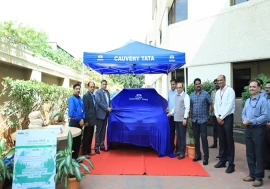
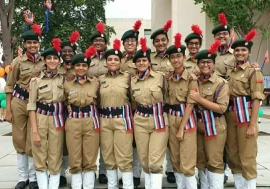
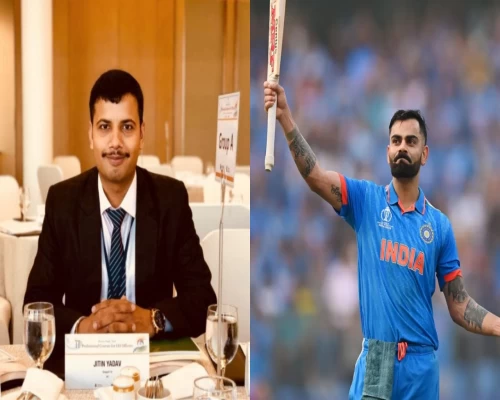
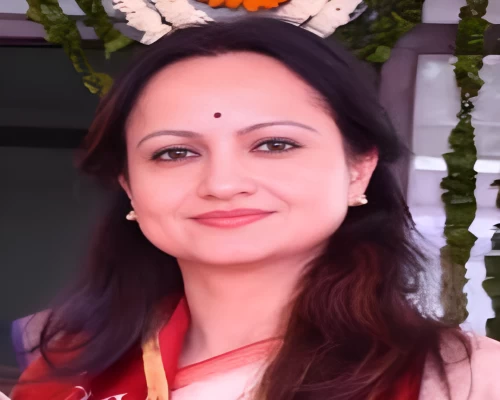
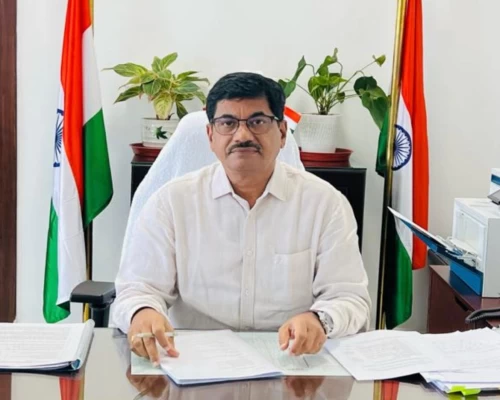
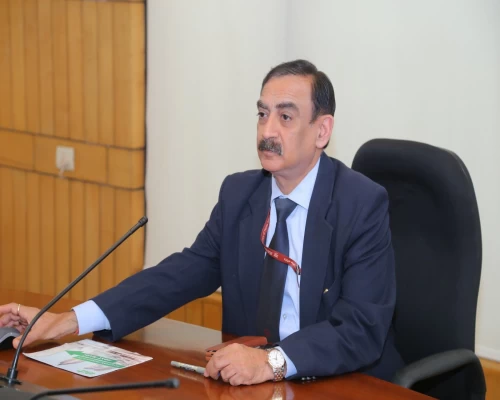
_500_x_400.webp)
